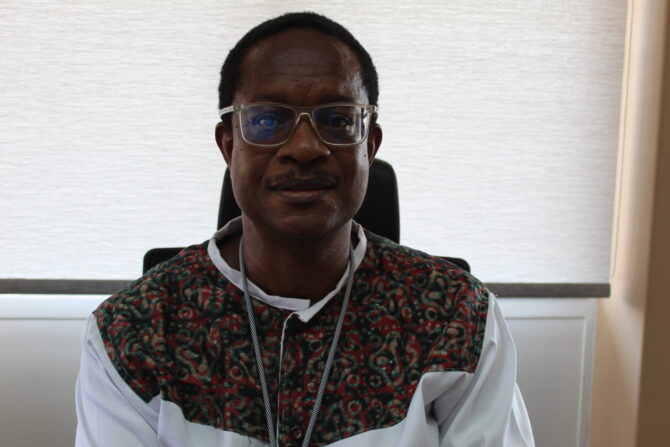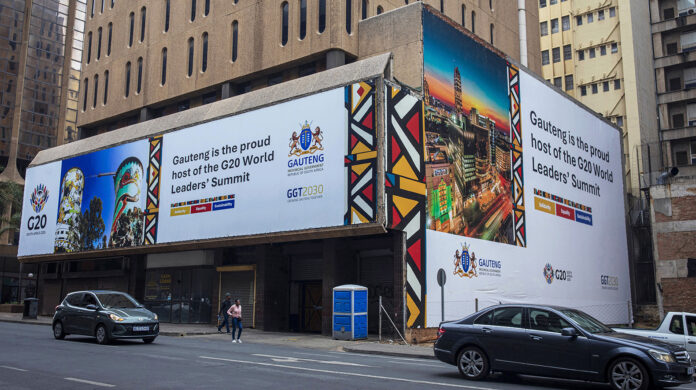South Africa’s 2025 presidency of the G20 marks a historic juncture. It offers a compelling opportunity to reframe global economic governance around the principles of “Solidarity, Equality, and Sustainability”.
However, to fully engage with and challenge the profound structural inequities at play requires a critical intersectional analysis, one that situates gender and the re-emergence of hypermasculinity within the broader regimes of necropolitics and coloniality, while also interrogating the aspirations and limitations of reparative utopia.
Gender as basis of inequalities
Gender is foundational to understanding both the persistent inequalities embedded in global economic systems and the renewed challenges posed by shifting geopolitical landscapes.
Within South Africa’s G20 agenda, the Women20 (W20) platform exemplifies a vital effort to mainstream gender equality as a core economic and social imperative. It’s also embedding values such as the Ubuntu/Botho philosophy and principles to reframe solidarity in collective and relational terms.
Yet, despite progress in securing commitments addressing the female labour participation gap, wage disparity, unpaid care work, and systemic violence against women, there remain barriers at the nexus of patriarchal capitalism and colonial legacies that demand more profound transformation.
The resurgence of hypermasculinity, a heightened performative form of masculinity often linked with the geopolitical rise of the far right, introduces a new complexity into these dynamics.
This type of masculinity promotes aggression, dominance, and exclusion. It frequently supports authoritarian nationalism and anti-feminist backlash that threaten global gender justice efforts.
Hypermasculinity ideologies
Hypermasculine geopolitical ideologies act as a necropolitical force. It increases differential vulnerabilities by reinforcing control through violence, exclusion, and disposability. This is especially towards women and marginalised gender identities in African and Global South contexts.
South Africa’s G20 presidency must therefore navigate these interconnected challenges. Using Mbembe’s concept of necropolitics as sovereign power over life and death is both racialised and gendered, influencing who is deemed politically and economically expendable.
The colonial matrix of power, as outlined by Quijano and Mignolo, clarifies how coloniality’s intertwined axes of race, class, and gender continue to shape global capitalism and knowledge systems, including within international governance forums such as the G20.
South Africa’s role offers a potential heterotopic space, to invoke Foucault, where subverted and emancipatory relations could be enacted, but only if hegemonic neoliberal and patriarchal structures can be meaningfully challenged.
From the perspective of a reparative utopia, the challenge is both visionary and daunting. Reparations involve more than financial compensation. They require an epistemic and ontological reckoning with colonial dispossession, gendered violence, and economic exclusion.
Women’s roles key to transformation
Women’s roles as carriers of communal memory, agents of healing, and leaders of socio-economic resilience must be central, not peripheral, to this transformative justice.
However, the hypermasculine reactionary currents worldwide risk co-opting or diluting reparative justice into technocratic interventions that lack radical redistribution or fundamental epistemic shifts.
In this critical nexus of necropolitics, coloniality, gender, and hypermasculinity, South Africa’s G20 Presidency embodies both the promise of Africa’s rising voice in global affairs and the dangers of deepening global power imbalances.
To achieve a truly transformative agenda, it must address the lived realities of intersecting oppressions, recognising that sustainable solidarity requires dismantling patriarchal capitalism and colonial legacies together, resisting the right’s hypermasculine resurgence, and prioritising reparative justice as a radical, inclusive endeavour.
It is only through such an intersectional, decolonial praxis that this historic presidency can move beyond symbolic inclusion to enact meaningful systemic change, affirming that no pursuit of global justice can succeed without confronting the necropolitical realities and gendered violences that continue to define our global order.

Professor Mothogae is chair of the Unisa’s Department of Gender and Sexuality Studies



